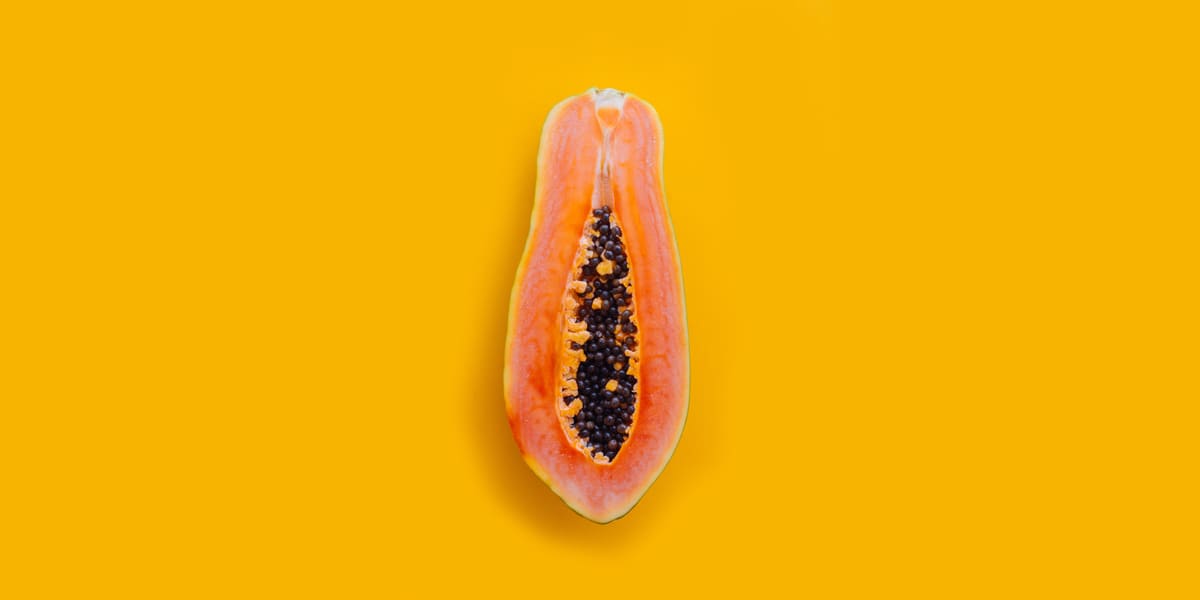6 vagina/vulva worries that absolutely need to go

It’s totally normal to have questions about your vagina, whether you have health concerns or are just plain curious. But if you’re worried about whether your vagina and vulva are “normal” when it comes to how they look, smell, taste, or feel, chances are those insecurities are coming from a place of shame. Which is obviously not your fault, but rather the result of centuries of misogynistic stigma surrounding vaginas and their functions (but that’s another story). Just like any other body part, there is no standard or normal vulva or vagina — everyone’s is different. So gather round as we break down the reality behind these common worries.

1. Does my vulva look normal?
This is probably the most common anxiety that people have about their vulva. Remember, the vulva is the external genitalia, including the labia, clitoris, and vaginal and urethral openings, whereas the vagina is the internal muscular canal connecting the vaginal opening to the cervix. Vulvas come in all shapes, sizes, and colors — just check out The Labia Library. While mainstream porn may be inundated with images of hairless vulvas with symmetrical, tiny labia, that’s not how most vulvas naturally look. It’s completely normal to have asymmetrical labia, just as it is to have asymmetrical breasts or differently sized feet. But the obsession with a “perfect” vulva has led to a dramatic rise in labiaplasty, a surgery that involves reshaping or shortening the labia. In reality, a labiaplasty is only necessary in extremely rare cases, when labia are so long as to become disruptive or painful in daily life.
As for color, vulvas come in all shades, and can even change with hormonal fluctuations. Your vulva does not have to be the same color as the rest of your skin, and certain parts, like your labia, may be different colors than other parts. Just like a fingerprint, no two vulvas are exactly the same. Say it with me: there is no such thing as a normal vulva.

2. Do I have too much pubic hair?
Real talk: the purpose of pubic hair is to protect vulvas and vaginas from bacteria and friction. Shaving, waxing, and tweezing pubic hair actually creates microscopic wounds allowing bacteria, parasites, and viruses to enter. Hair removal actually increases the risk of contracting STIs transmitted via fluids, such as chlamydia and gonorrhea, and via skin-to-skin contact, such as herpes and HPV. You don’t have to do anything with your pubic hair beyond what you feel comfortable with.
3. Does my vagina smell or taste bad?
Guess what? Vaginas smell, and taste, like...vaginas! Does any part of your body naturally smell like flowers? Nope, and neither should vaginas. Barring any infection, vaginas smell and taste normal, and normal varies. Vaginas are acidic in nature, so their taste is often described as somewhat sour. A “fishy” smell if often a sign of infection, most commonly bacterial vaginosis.
Vaginas are self-cleaning and balance their own pH, and putting any soaps or douches inside your vagina can actually cause pH imbalances and irritation. Products claiming to “fix” or “cover” the natural smell of your vagina are capitalizing on long-perpetuated stigma against vaginas being “dirty.” If you decide to clean your genitals at all, just use water and mild soap on the vulva, and a warm washcloth for your vagina.

4. Is my vagina too loose?
The myth of a “loose” vagina comes directly from cultural narratives surrounding virginity and chastity. The vagina is not naturally “tight,” but rather a muscle that expands and contracts depending on arousal. While the shape and feel of your vagina may change over time due to age and/or childbirth, penetrative sex does not make the vagina “looser.” If you’re obsessed with Kegels, remember that they don’t actually “tighten” the vagina, but rather strengthen the pelvic floor, which are the muscles surrounding the vagina.
5. Is my vagina wet enough?
Vaginas naturally self-lubricate, and, again, there is no normal when it comes to how much. Even people who have no problem getting wet still like to add some lube for extra comfort during sex. Dryness should only be a concern if you are experiencing painful sex or chronic discomfort. Vaginal dryness can occur for many different reasons: a change in hormones, lack of sleep, medication, breastfeeding, menopause, or even stress. If you have chronic dryness issues, talk to a healthcare provider about possible treatments.
6. What if I queef?
First of all, queefing is just air escaping the vagina. The vagina is a canal, and air can get trapped in there. When you change positions during sex, or experience increased abdominal pressure, like coughing or exercising, air can escape. It’s completely normal!




